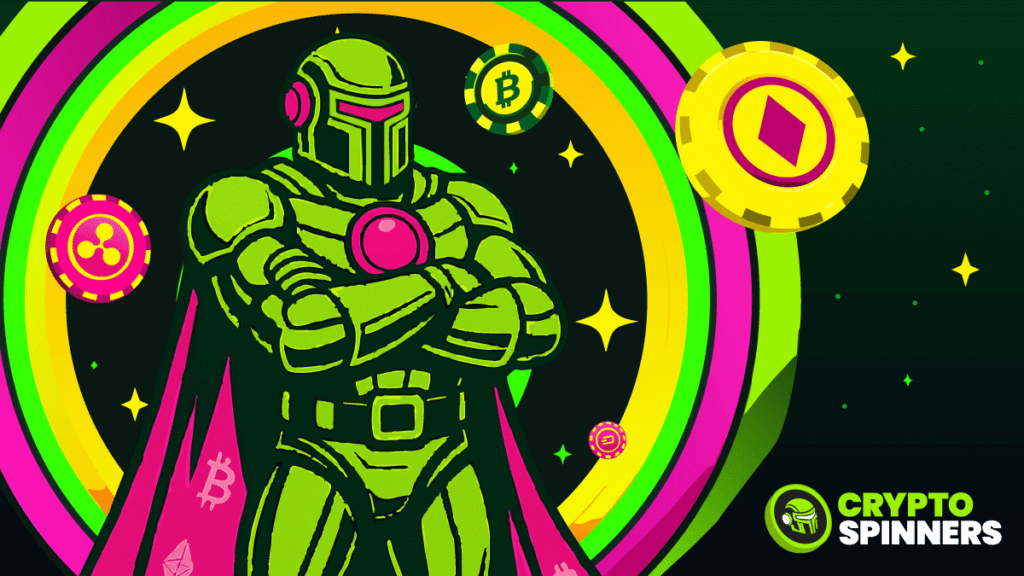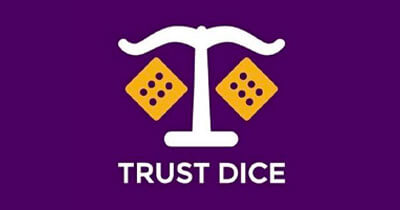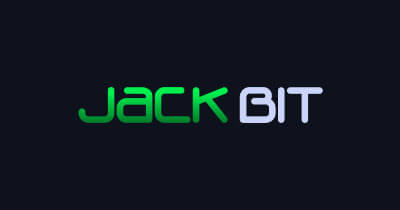Best Cryptocurrencies for Casinos
Your Guide to Digital Coins 🚀Choosing the right cryptocurrency can make or break your casino experience. The difference between paying pennies versus dollars in fees, waiting seconds versus hours for withdrawals, and gambling with stability versus volatility often comes down to picking the right coin. This guide breaks down the top six cryptocurrencies that serious players use and everything else you need to know.

Imagine – you withdraw your rewards and receive the funds in just three seconds instead of three days. This is what cryptocurrency has been doing to the online gambling industry for a while now.
As we covered in our crypto stats report, the crypto gambling market has exploded from barely $50 million in 2019 to $250 million by 2024, with experts projecting it could exceed $1 billion within the next three years. And of course, this growth is not accidental. Players have discovered that cryptocurrency casinos offer perks like instant transactions, transparent blockchain verification, worldwide accessibility, and better privacy.
But here’s the catch – not all cryptocurrencies are created equal. The difference between picking the right coin versus the wrong one can cost you hundreds of dollars per year in unnecessary fees. Some coins offer complete anonymity while others expose every transaction on a public ledger. Others maintain stable value while your entire bankroll could swing 50% in a single week.
This guide cuts through the confusion and hands you the exact information you need to pick the right cryptocurrency for your next casino session. You’ll learn the real-world pros and cons of each option, which casinos accept them, what transaction fees actually are, and honest assessments of who should use each coin.
| 💡 TL;DR |
|---|
| – Bitcoin dominates with universal acceptance across thousands of casinos, though transaction fees average $0.60. – Ethereum powers smart contracts and provably fair games but costs more to move. Tether (USDT) eliminates price swings with its dollar peg, perfect for bankroll management. – Solana delivers lightning-fast transactions at $0.0005 per transfer. TRON offers similar speed at rock-bottom costs. – Monero provides complete anonymity for privacy-focused players. |
Best Cryptocurrencies for Casinos
Before we jump into the details, let’s take a quick look at the top cryptocurrencies that we thought were suitable for online casino players –
| Cryptocurrency | Features | Market Cap |
|---|---|---|
| Bitcoin (BTC) | First crypto, universal acceptance, proven security, slower transactions | $1.916 trillion |
| Ethereum (ETH) | Smart contracts, provably fair games, widespread DeFi integration | $378.55 billion |
| Tether (USDT) | Price stability pegged to USD, fast transactions, low volatility | $183.89 billion |
| Solana (SOL) | Ultra-fast speed (65,000+ TPS), minimal fees, growing adoption | $78.92 billion |
| TRON (TRX) | Low-cost transactions, high throughput, stablecoin support | $27.93 billion |
| Monero (XMR) | Complete privacy, untraceable transactions, decentralized | $7.62 billion |
Please note that the market cap keeps fluctuating, so double-check the numbers before making any decisions.
In the next section, we will be looking at each of the cryptocurrency more closely, highlighting the basics, and weighing the pros and cons.
1. Bitcoin (BTC) – Best for Universal Acceptance
| Type | Native cryptocurrency (Layer 1 blockchain) |
| Networks | Bitcoin mainnet, Lightning Network |
| Fees | Average $0.60 per transaction |
| Accepted at | Cloudbet, Lucky Block, Jackbit, and several other crypto casinos |
| Launched in | 2009 |
✅ Pros
- Accepted at virtually every crypto casino
- Most liquid cryptocurrency with proven track record
- Strong security through proof-of-work consensus
- Large community and widespread infrastructure
❌ Cons
- Higher transaction fees compared to alternatives
- Slower confirmation times (average 10 minutes)
- Price volatility can affect bankroll value
- Network congestion during peak periods
As we have mentioned in our report, Bitcoin remains a top choice for online gambling. More precisely, BTC accounts for 73.3% market share when it comes to casino-related transactions.
Bitcoin shines at casinos because of three main advantages. First, it is universally accepted, which means you can deposit at thousands of platforms without worrying about compatibility. Next, Bitcoin has an established infrastructure, so you get reliable wallets, exchanges, and payment processors that casinos trust. To add to this, liquidity allows you to move in and out of positions quickly without slippage.
Over the last few years, Bitcoin has received continuous upgrades. In 2021, the Taproot upgrade was activated and it improved privacy, efficiency, and smart contract capabilities on the Bitcoin network by introducing Schnorr signatures, MAST technology, and Tapscript. For players, this means lower transaction fees for complex transactions, enhanced financial privacy, and improved Lightning Network efficiency.
Now, if you’re a high roller or a player who prioritizes security over speed, then Bitcoin is a suitable option. Sure, the fees are slightly higher, but they don’t really matter when you’re moving larger amounts. If you’re depositing four figures or more and want the peace of mind that comes with the most battle-tested blockchain, Bitcoin delivers.
2. Ethereum (ETH) – Best for Smart Contract Games
| Type | Smart contract platform cryptocurrency |
| Networks | Ethereum mainnet, Layer 2 networks (Arbitrum, Optimism, Polygon) |
| Fees | Variable, averaging $0.80 |
| Accepted at | Wild.io, Jackbit, Trust Dice, and several other crypto casinos |
| Launched in | 2015 |
✅ Pros
- Powers provably fair gaming through smart contracts
- Extensive DeFi ecosystem integration
- Strong developer community and continuous upgrades
- Wide token support for casino-specific tokens
❌ Cons
- Gas fees fluctuate with network activity
- Slower than newer blockchain alternatives
- Complex for beginners to understand
The whole point of Ethereum was to build upon Bitcoin’s success and expand utility for cryptocurrencies. And so far, it is safe to say that Ethereum has been nothing less than revolutionary – especially smart contracts. With regards to online gambling, smart contracts automate processes like payouts and betting, reducing human errors and enhancing user experience.
Plus, several platforms leverage the blockchain technology for better transparency and fairness with provably fair games. These self-executing contracts facilitate, verify, and enforce game outcomes automatically, offering security that regular online casinos simply cannot.
To add to this, Ethereum has an active developer community and it gets significant upgrades quite often. The latest update Pectra went live in May 2025, which was the second major upgrade since The Merge. This upgrade combined 11 Ethereum Improvement Proposals (EIPs), which translates to significantly lower transaction fees, faster confirmations, and improved integration with Layer 2 solutions.
Clearly, Ethereum has a lot more to offer than Bitcoin. You get provably fair games, NFT-based casino assets, and even participate in GambleFi projects. However, to make full use of these features, you need to learn the basics, which can be quite a learning curve. Another shortcoming here is that the gas fees can be slightly higher than other newer projects.
3. Tether (USDT) – Best for Price Stability
| Type | Fiat-collateralized stablecoin |
| Networks | Ethereum (ERC-20), TRON (TRC-20), Solana, BNB Chain |
| Fees | Variable, approx. $0.30 on TRC-20 and $10 on ERC-20 |
| Accepted at | BC.Game, MetaWin, Cloudbet, and several other crypto casinos |
| Launched in | 2014 |
✅ Pros
- Zero volatility with 1:1 USD peg
- Fast transactions across multiple networks
- Simple to understand for beginners
❌ Cons
- Network fees vary by blockchain choice
- Less exciting than appreciating cryptocurrencies
- Centralized control by Tether company
Think of USDT as a regular dollar supercharged with blockchain technology. The idea here is that we get to benefit from blockchain technology without exposing ourselves to cryptocurrency’s volatility. Stablecoins like USDT maintain their value by pegging themselves to real currency like the US Dollar.
This consistent value, irrespective of fluctuations in the crypto market, makes it the top banking method for risk-averse players. In fact, if we look at some of the latest reports, more and more players have been using stablecoins for casinos, with USDT at the lead.
Further, Tether has been actively developing the project. The company launched several major initiatives including Tether Pay, a lightweight mobile payment system, and native USDT support in Telegram, enabling instant peer-to-peer transfers. Plus, there have been recent infrastructure developments including cross-chain swap support via LayerZero and Axelar integrations for better DeFi interoperability across multiple blockchains.
Tether is most suitable for players who want cryptocurrency’s benefits without the volatility risks. If you’re building a bankroll and need to know exactly what your funds are worth at any moment, USDT eliminates the guesswork. It’s also perfect for beginners dipping their toes into crypto casinos.
4. Solana (SOL) – Best for Lightning-Fast Transactions
| Type | High-performance blockchain cryptocurrency |
| Networks | Solana mainnet |
| Fees | Average $0.0005 per transaction |
| Accepted at | BC.Game, TrustDice, Playbet, and other crypto casinos |
| Launched in | 2020 |
✅ Pros
- Blazing fast with 65,000+ transactions per second
- Extremely low fees (less than a penny)
- Growing ecosystem and casino adoption
- Excellent for frequent small transactions
❌ Cons
- Network outages have occurred historically
- Smaller developer community than Ethereum
Considering the speed, efficiency, and blockchain transparency that Solana offers, it’s no surprise that casino players are using the token more and more. Unlike Bitcoin or Ethereum platforms, Solana enables near-instant deposits and withdrawals without high costs or delays. Many sites support anonymous play and provably fair gaming, offering both privacy and transparency.
As far as development is concerned, in 2025, two major upgrades have been in the pipeline – Alpenglow and Firedancer. Alpenglow is a new consensus protocol that slashes transaction finality from several seconds to as little as 100 to 150 milliseconds. Plus, it also introduces Votor and Rotor subsystems, which decouple consensus voting and data propagation to minimize congestion and ensure rapid settlement.
Meanwhile, Firedancer, built by Jump Crypto, is a complete reimplementation of the Solana validator client in C/C++. It dramatically improves network diversity and security: if one client faces bugs or failures, others keep the chain operational, guarding against single points of failure and major outages.
Solana works best for active players who value speed and efficiency above all else. If you’re the type who deposits, plays a quick session, and withdraws multiple times per day, then Solana might check a lot of boxes for you. It’s also excellent for players exploring newer, more innovative casino platforms that have built their infrastructure around high-performance blockchains.
5. TRON (TRX)
| Type | Decentralized blockchain platform cryptocurrency |
| Networks | TRON mainnet |
| Fees | Less than $0.01 per transaction |
| Accepted at | Gamdom, Mega Dice, 0xBet, and other crypto casinos |
| Launched in | 2017 |
✅ Pros
- Extremely low transaction costs
- Fast confirmation times (3 seconds per block)
- Strong stablecoin integration (USDT TRC-20)
- High scalability for casino operations
❌ Cons
- Less decentralized than Bitcoin or Ethereum
- Smaller ecosystem than major competitors
- Lower brand recognition among casual users
If you want minimal fees and fast transactions, then TRON is the powerhouse of cost-effectiveness. The TRON blockchain features the TRONPROTOCOL, a decentralized blockchain protocol that delivers faster transactions, improves scalability, and heightens the availability of the coin and derivative digital products.
So far, Tron has been receiving regular upgrades. In 2025, the TRON Super Representative community approved a groundbreaking 60% reduction in base transaction fees, lowering average daily fees from $1.9 million to $1.2 million.
TRON is most suitable for budget-conscious players and those who prefer stablecoins on the TRON network. This is because USDT on TRC-20 costs only $0.30 per transaction compared to $10 on Ethereum’s ERC-20 network. If you’re making frequent deposits and withdrawals with smaller amounts or want to maximize every dollar of your bankroll by minimizing fees, TRON delivers the most value.
6. Monero (XMR)
| Type | Privacy-focused cryptocurrency |
| Networks | Monero mainnet |
| Fees | Very low (typically under $0.02) |
| Accepted at | BC.Game, Jackbit, and other crypto casinos |
| Launched in | 2014 |
✅ Pros
- Complete transaction anonymity and privacy
- Untraceable by default with ring signatures
- Low and consistent transaction fees
- Decentralized without corporate control
❌ Cons
- Limited acceptance at mainstream casinos
- Regulatory scrutiny in some jurisdictions
- Smaller ecosystem than major cryptocurrencies
Since crypto casinos are all about privacy, our list would be incomplete without Monero. The main reason players turn to Monero casinos is anonymity because every XMR transaction is private by default, meaning your deposits and withdrawals can’t be traced back to you. This makes Monero a top choice for no-KYC casinos, where you can get greater privacy.
In 2025, Monero released the critical “Fluorine Fermi” upgrade (CLI v0.18.4.3), which strengthened user protection against spy nodes that threaten transaction privacy. The upgrade implements an improved peer selection algorithm that reduces the chance users connect to multiple nodes within the same IP subnet, a common spy node tactic employed by surveillance entities attempting to track Monero transactions.
Looking ahead, the Monero community eagerly anticipates the Full-Chain Membership Proof (FCMP++) update, which promises quantum resistance and further improved transaction anonymity.
As you can guess, Monero is best suited for players who value privacy as their top priority. If you’re uncomfortable with the idea that anyone can trace your gambling transactions on a public blockchain, Monero solves that problem completely.
| Always perform your own due diligence before depositing significant funds at any crypto casino. Check the platform’s licensing, read user reviews, and start with smaller test deposits to verify withdrawal processes work as advertised. |
What is Cryptocurrency? Why is it Good for Casinos?
Cryptocurrency is digital money that exists only online, secured by cryptography and recorded on a decentralized ledger called a blockchain. Unlike traditional currency controlled by governments and banks, cryptocurrencies operate on networks maintained by thousands of computers worldwide, which makes them resistant to censorship and manipulation.
As we saw in this guide, more and more casino players prefer cryptocurrencies. This is because of several reasons – there’s no need for intermediaries like banks for transactions, the blockchain providers better transparency, and you get enhanced privacy.
Let’s understand this better with an example.
Assume that you want to deposit $500 into your online casino account with a bank transfer. You’d wait 3-5 business days for the funds to clear, pay processing fees up to $25, and provide your bank account details, address, and ID verification.
Now compare that to depositing 0.005 BTC at a crypto casino. The transaction confirms in 10-30 minutes, costs under $1 in fees, and requires nothing more than a wallet address.
| If you want to learn crypto terminology, you should definitely check out our glossary. It’s always good to know the jargon as you learn how to use cryptocurrency. |
Types of Cryptocurrencies
As you might have noticed, there are different types of cryptocurrencies, and each type comes with its own unique features. In this section, we will be looking at the types quickly –
Bitcoin and Altcoins
Bitcoin and major altcoins like Ethereum represent native blockchain currencies designed to be stores of value or platforms for applications. These cryptocurrencies appreciate or depreciate based on market forces, which means you could potentially get more out of your investments. However, not all players will be comfortable with the price fluctuations.
Stablecoins
Stablecoins are cryptocurrencies explicitly designed to maintain consistent value by pegging to stable assets like the US dollar. Fiat-backed stablecoins such as Tether (USDT) and USD Coin (USDC) are backed by reserves of traditional currency – that’s how they get their price stability through 1:1 backing.
Central Bank Digital Currencies (CBDCs)
Over the last few years, you’ve probably heard Central Bank Digital Currencies (CBDCs) being talked about in the news. These often also get referred to as ‘cryptos’, but this is not accurate. CBDCs are entirely centralised, and merely a digital form of fiat currencies.
| 📝 Note on blockchain compatibility |
|---|
| Different cryptocurrencies operate on specific blockchain networks, and some tokens exist across multiple chains. For example, USDT operates on Ethereum (ERC-20), TRON (TRC-20), Solana, and other networks. Each network offers different speeds and fees, so understanding blockchain compatibility helps you choose the most cost-effective option. For instance, USDT on TRC-20 costs $0.30 per transaction while the same token on ERC-20 costs around $10. Always verify which network your casino supports before depositing to avoid losing funds by sending to an incompatible address. |
Cryptocurrency vs Regular Money – What’s Better for Casinos?
In this section, we will be discussing the difference between cryptocurrency and regular money for online casinos.
| Cryptocurrency | Regular Money | |
|---|---|---|
| Speed | Instant to 30 minutes | 1-7 business days |
| Fees | $0.0005 to $2.60 | $5-50 for wire transfers |
| Privacy | High to complete anonymity | Requires full identity disclosure |
| Availability | 24/7 worldwide | Limited by banking hours and geography |
| Volatility | High (except stablecoins) | Stable |
| Regulatory Protection | Limited | Strong consumer protections |
| Reversibility | Irreversible | Chargebacks possible |
| Acceptance | Growing but limited | Universal |
How to Use Cryptocurrencies at Casinos?
When it comes to casinos, cryptocurrencies have several use cases like transactions, staking, and much more. We have briefly explained some of the use cases in this section.
Deposits and Withdrawals
When it comes to crypto casinos, the main use case for cryptocurrencies is deposits and withdrawals. As we saw earlier in the guide, cryptocurrency deposits and withdrawals are often instant. Plus, depending on the network you select, you might actually pay next to nothing for the transaction. And if you use a private coin like Monero, your transactions would be private.
Utility Tokens
Many crypto casinos issue their own utility tokens that provide special benefits within their ecosystems. These utility tokens often come with perks like reduced fees, exclusive game access, or enhanced loyalty rewards. For instance, BC.Game, TrustDice, and Lucky Block have their own native tokens.
Players can earn utility tokens through gameplay, promotions, or by purchasing them directly. The tokens function as a second currency within the casino, sometimes offering better exchange rates or bonus multipliers compared to depositing standard cryptocurrencies. Some platforms allow you to stake utility tokens to earn passive income while maintaining a balance for gambling.
Staking
Cryptocurrency staking at casinos lets you earn passive rewards on your crypto holdings. Platforms like Vault Pro at BC.Game allow players to earn up to 10% yearly interest on stored coins. You deposit cryptocurrencies into the casino’s staking pool, which locks up your funds for a specified period. In return, you receive regular rewards, typically paid in the same cryptocurrency you staked.
For example, if you stake 1 ETH at 5% annual percentage yield (APY), you’d earn approximately 0.05 ETH per year. Casinos often offer higher staking rates than traditional exchanges to incentivize players to keep funds on the platform. This creates a win-win situation where the casino gains liquidity and user retention while players earn income on their bankroll even when not actively gambling.
NFTs and In-Game Assets
With NFTs, players can get true ownership of their digital assets. Players can earn, trade, and utilize NFTs representing unique characters, skins, virtual items, collectible cards, or exclusive tournament entries.
These digital assets hold real value and can be bought, sold, or traded both within the casino environment and on external marketplaces. Some platforms offer NFT-based VIP memberships that grant access to exclusive games, higher withdrawal limits, or personalized bonuses.
Final Thoughts
As each cryptocurrency comes with its own set of features, the best one depends on what you value. For instance, if you need a widely accepted coin with good liquidity, both Bitcoin and Ethereum are good options.
Meanwhile, Tether eliminates volatility concerns with its stable dollar peg, which makes it suitable for beginners and people who don’t want extra exposure to market fluctuations. If you want speed and cheap transactions, then nothing can beat Solana and TRON. And for the privacy-conscious players, Monero is the best option, although the acceptance is relatively limited.
The best strategy here is often diversification. Keep Bitcoin for maximum compatibility, Tether for stable value storage, and a fast coin like Solana or TRON for frequent transactions.
Disclaimer: This article is for informational purposes only and does not constitute financial advice. Cryptocurrency investments and online gambling both carry significant risks. Always verify the legal status of online gambling in your location before participating, as laws vary significantly by jurisdiction.





